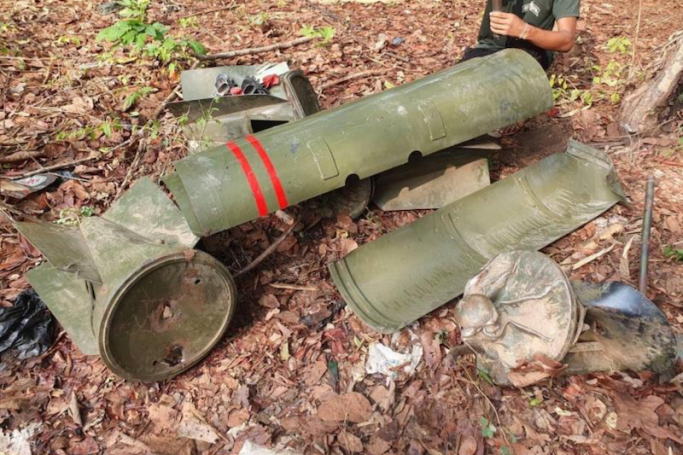A coalition of rights groups on Thursday condemned Myanmar for the army's renewed use of cluster munitions by the government, demanding an immediate end to the practice.
The Cluster Munition Coalition (CMC) said the military junta, which seized power in February 2021, had used such weapons on several occasions -- as recently as June.
It was, they argued, in violation of international law.
"Myanmar's production and use of cluster bombs is gravely concerning as these indiscriminate weapons primarily kill and injure civilians," said group researcher Dr. Yeshua Moser-Puangsuwan.
"There can be no justification for using them. All governments should condemn this use of an internationally banned weapon."
Myanmar is not a signatory to a 2008 convention ratified by 112 countries and signed by 12 banning the weapons.
A CMC statement said their use in the country had come to light in the form of new information including photographs.
Cluster munitions are delivered by artillery, rockets, missiles, and aircraft, opening in mid-air and disperse dozens or hundreds of submunitions or 'bomblets', over a wide area. Many of them do not explode on initial impact but -- like landmines -- can wound and kill, for years.
The CMC said its monitor had asked Myanmar's defence ministry to confirm or deny its production and use of cluster bombs but had not received a response.
Myanmar told the UN General Assembly in November 2019 it could not join the convention until a nationwide peace agreement was in place.
The army has met stiff opposition to the coup which turfed out the administration led by now jailed Nobel peace laureate Aung San Suu Kyi, leading to unrest which has left thousands dead.
The CMC is a coalition of rights groups based in around a hundred countries around the world and includes Amnesty International and Human Rights Watch.
AFP












